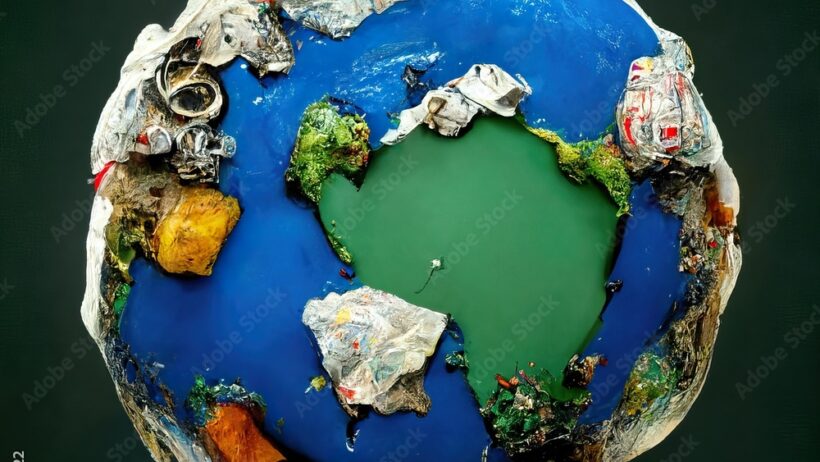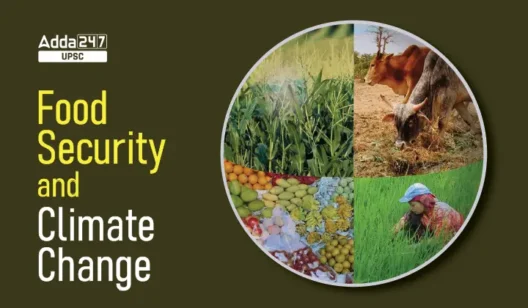In today’s contemporary landscape, it is impossible to overlook the burgeoning heaps of plastic that have seemingly sprouted in every corner of our planet. From remote islands to the ocean depths, the omnipresence of plastic waste has turned Earth into a veritable “Plastic Planet.” This phenomenon does not merely reflect a consumerist culture; it signifies a complex interplay of production, waste management failures, and persistent negligence towards environmental stewardship. The implications of this reality extend far beyond mere aesthetics, impacting terrestrial ecosystems and the climate in profound ways.
As we examine the confluence of trash and its contribution to the climate emergency, we must scrutinize the lifecycle of plastics. Plastics are not only a major waste concern; they are derived from fossil fuels, thus intertwining their existence with greenhouse gas emissions. The production phase of plastics releases vast quantities of carbon dioxide, exacerbating global warming. Estimates indicate that the creation of new plastic emits approximately 1.8 billion metric tons of greenhouse gases annually—a staggering number that is projected to increase substantially in the forthcoming decades.
The process begins with the extraction of fossil fuels, primarily natural gas and crude oil. These resources undergo extensive extraction and processing to yield ethylene and propylene—the foundational building blocks of most plastic products. The subsequent refinement processes are energy-intensive, further amplifying their carbon footprint. Current models suggest that, if the pace of plastic production continues unabated, by 2030, emissions from plastics could reach over 1.3 gigatons per year. This is not merely a statistic; it signifies an impending crisis, as every ton of plastic manufactured equals repercussions for the climate, ecosystems, and ultimately human health.
Upon usage, many plastics eventually find their way into landfills, oceans, and terrestrial environments. A staggering percentage, estimated to be around 91%, remains un-recycled, contributing to the global waste crisis. The sheer magnitude of this issue raises poignant questions: What motivates society’s incessant reliance on single-use plastics? Certainly, the convenience factor plays a critical role; items such as plastic straws, disposable cutlery, and packaging fulfill immediate needs, albeit at a catastrophic cost to our environment.
But perhaps even more alarming is how society’s fascination with convenience blinds us to the impending consequences. The disconnect between consumption and its repercussions reflects a deeper societal malaise, wherein short-term gratification supersedes long-term sustainability. This behavioral pattern is not easily surmountable; it is embedded within the intricate web of modern living. The culture of disposability has become the default mode of existence, leading to plastic pollution that escapes our immediate conscience.
The aftermath of plastic pollution is readily apparent in various habitats, where ecosystems are systematically destabilized. Marine environments bear the brunt of this disorder, as countless species ingest plastic debris, leading to detrimental health impacts or even death. Such encounters disrupt the food chain, highlighting a significant gap in the understanding of how our actions reverberate across trophic levels. With an estimated 100 million marine life casualties attributed to plastic ingestion each year, the ecological tragedy intensifies with each passing moment.
As this realization dawns, one must also confront the socio-economic ramifications of plastic pollution. Undoubtedly, marginalized communities suffer disproportionately from waste accumulation, often found living in proximity to landfills and toxic sites. The inequity of environmental degradation extends further, as the climate consequences of plastic usage lead to unpredictable weather patterns, exacerbating resource scarcity and resulting in conflict. The narrative of plastic waste, therefore, is not merely an environmental concern; it embodies broader socio-political dimensions, demanding an intersectional approach to finding solutions.
Addressing the plastic crisis necessitates bold action across multiple sectors. Policy mechanisms aimed at curbing plastic production are essential. Extended producer responsibility laws, which require manufacturers to account for the lifecycle of their products, can counteract the explorable negligence inherent in plastic production. Additionally, incentivizing the development and utilization of biodegradable materials can catalyze a significant paradigm shift in consumer habits. Education plays a pivotal role, as it imparts awareness about the impacts of plastic consumption and fosters a collective resolve to adopt sustainable practices.
Recycling, too, must undergo significant revamping. Only through infrastructure improvements, coupled with public awareness campaigns to boost participation rates, can it become a viable avenue for management of plastic waste. Conventional recycling has proven insufficient; hence, a transition toward a circular economy—wherein materials are continually reused or repurposed—rendering a sustainable loop, is imperative.
Furthermore, grassroots activism remains a catalyst for change. Community-led initiatives, such as beach clean-ups and educational workshops, serve to engage local populations in addressing the plastics crisis head-on. Such movements cultivate in individuals a sense of agency, an understanding that collective action can yield tangible results. Cultivating this consciousness propels society towards envisioning a future devoid of the tyranny of plastic pollution.
Ultimately, the plight of plastic pollution is a multifaceted issue requiring urgent attention and action. The statistics are alarming, yet they do not capture the gravity of a deteriorating environment. It is this interplay of consumption, ecology, and society that elucidates the depth of the plastic crisis. To combat this growing emergency is not merely to address environmental degradation, but to advocate for a sustainable future that prioritizes the health of our planet and its inhabitants. As we navigate through the tribulations of the present moment, we must remain cognizant that collective, informed, and resolute action is our greatest ally against the specter of a Plastic Planet.






